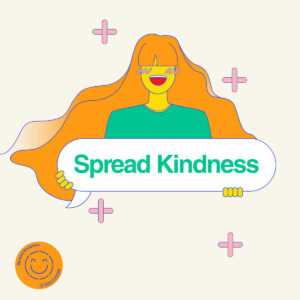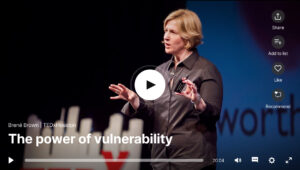Be kind. It’s a mantra we’ve heard a lot of in previous months. Jacinda and our government, encouraging us to think about our fellow New Zealanders and Unite Against COVID-19.
And it’s fair to say that people responded.

During the height of our Level 4 lockdown, there were numerous heart-warming examples of people looking out for each other. And you could certainly sense a bond within local communities.
(How many times did you walk through your neighbourhood and say hello to complete strangers? Probably more than once!)
Nice guys don’t finish last.
The idea of being kind was perfectly pitched for the COVID pandemic. But increasingly, many companies are nurturing a culture of kindness in the workplace too.
Although it hasn’t always been this way.
For a long time, we were told the only way to climb the corporate ladder or be successful in business was to be cutthroat and competitive. This stereotype was reinforced on TV and in movies – think Gordon Gecko plotting his way to the top in Wall Street.
Thankfully, nice guys and girls can finish first.
Enough positives to make everyone smile!
In the real world, kindness creates a positive ripple that affects the whole workplace culture.
One study that found people who were treated kindly at work repaid it by being 278% more generous to co-workers compared to a control group. That’s some return on investment.
Research has also found that kindness encourages increased health and increased emotional well-being in the workplace in the following ways:
Increases Energy Levels.
Acts of kindness release a hormone called serotonin which generates a feeling of calmness and can even boost self-esteem.
Increases Positive Perspectives.
Kindness also encourages the release of oxytocin which encourages optimism, lowers blood pressure, and promotes cardiovascular health.
Increases Well-Being
When you are kind, serotonin is released into your system. Serotonin is the ‘feel-good’ chemical in our brain that generates happiness. Being kind at work allows professionals to be more satisfied with their jobs, and it can set off a morale-boosting wave throughout an organisation.
5 Simple Ways to Be Kind at Work
It doesn’t take much to start practising kindness at work. The more you do it, the more it will become a habit. And the more kindness you will receive in return. Here are a few examples to get started:
- Slow down when you come into the office and say good morning or hello to colleagues more often. Smile when you do.
- Smile at a colleague (or as many as you like) every day for one week and notice what happens and how you feel.
- Be considerate: when you make yourself a cup of tea, ask others whether they’d like a cuppa too.
- Be more vocal in your praise: pay a different colleague a compliment every day for one week and notice the effect it has on you.
- Engage your ears: when asking colleagues ‘how are you?’, stop and listen, be genuinely interested in how they are.
Quotes of Kindness (that you might like to share!)
Kindness is the language which the deaf can hear and the blind can see.
– Mark Twain
My religion is very simple. My religion is kindness.
– Dalai Lama
You cannot do a kindness too soon, for you never know how soon it will be too late.
– Ralph Waldo Emerson
Love and kindness are never wasted. They always make a difference. They bless the one who receives them, and they bless you, the giver.
– Barbara de Angelis
Kindness in words creates confidence. Kindness in thinking creates profoundness. Kindness in giving creates love.
– Lao Tzu
49 Million Views and Counting – The Power of Vulnerability – Brene Browns TED TALK
Need further proof the being kind works? Brene Brown is a research professor and author who studies human connection. Her TED talk in 2010, The Power of Vulnerability has been viewed by more than 49 million times, one of the highest number of TED talk views ever.
CLICK HERE TO VIEW >
www.ted.com/talks/brene_brown_the_power_of_vulnerability




